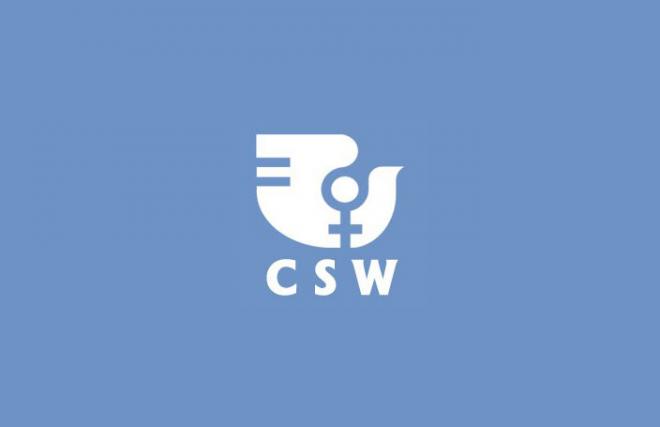The Episcopal News Service reports that more than 100 delegates from the Anglican Communion are attending the UN Commission on the Status of Women’s 59th session, currently under way in New York, March 9-20, a continuation and assessment of prior sessions.
Presiding Bishop Katharine Jefferts Schori presided over the Eucharist in the Chapel of Christ the Lord in the Episcopal Church Center, and Diocese of Long Island Assistant Bishop Chilton Knudsen preached March 9 on John 20:11-18 at the opening Episcopal and Anglican Eucharist. An excerpt:
This mysterious stranger also asked her the same question: “Woman, why are you weeping?”
This is a question to all of humanity, in our time as well as in Jesus’ time.
We come here to this meeting of the United Nations Commission on the Status of Women because there is much in our world which causes us to weep. We weep because children are sold as slaves. Women and children starve for want of food. Because violence and oppression continue to dominate, so women are deprived of freedom and dignity. We are weeping because women are treated as second-class members of their society.
Woman, why are you weeping?
Mary Magdalene answers yet again, assuming that someone has taken away Jesus’ body: “Sir, if you have carried him away, tell me where so I can take his body myself.”
At that moment, Jesus calls her by name, “Mary!” She hears that familiar voice speaking her name. At once, she knows it is Jesus, who is now alive in the glorious power of resurrection.
Hope is alive! The message of Jesus — about compassion and justice — is victorious over the systems of power and greed and oppression.
The U.N. Secretary General offered the opening remarks that day:
U.N. Secretary General Ban Ki-moon, in opening remarks on March 9, called 2015 “a vital year for advancing the cause of gender equality.”
“Women continue to suffer disproportionately from the economic crisis, from the impacts of climate change, from the displacement caused by conflict, persecution and so much else,” he said. “Extremist groups continue to viciously and systematically attack girls and women. The international community needs to translate its outrage into aid, services, support and justice.”
However, Ban said, “women are not just victims; they are agents of progress and change.
“Empowered women and girls are the best drivers of growth, the best hope for reconciliation, and the best buffer against radicalization of youth and the repetition of cycles of violence,” he said.
Reuters and other news sources report that some activists are voicing concern that the declaration proposed in this year’s session is not strong enough:
World leaders on Monday pledged to ramp up action to achieve gender equality by 2030, but some women’s rights activists were impatient with new promises after sluggish progress made in the past 20 years.
Women and girls have come a long way in some areas, such as health and education, since the signing of the Beijing Declaration and Platform for Action in 1995.
But progress overall has been uneven and even stagnant in other sectors, such as employment, according to officials and representatives gathered at the United Nations for the 59th Commission on the Status of Women (CSW).
The UN’s website for the event is here. Topics of discussion in main and side events include politics, cyber violence, sexuality education, economic empowerment, food and nutrition, women and girls with disabilities, human trafficking, women in STEM, gender stereotypes, climate change and others.
UN Women is on Twitter.
Posted by Cara Ellen Modisett

